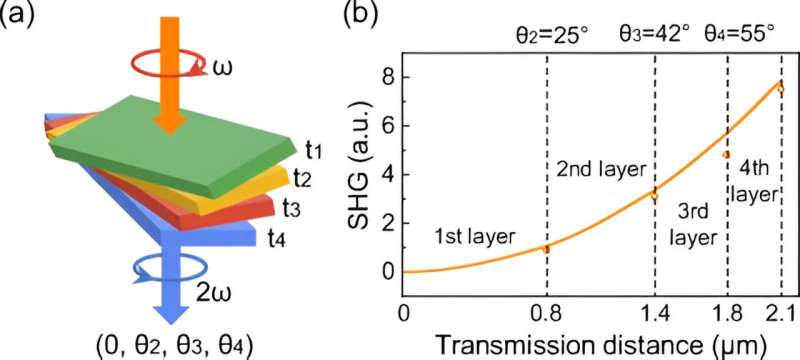
Scientists invent ultrathin optical crystal for next-generation laser tech (09/01/2024)
A team of Chinese researchers
used a novel theory to invent a new type of ultrathin optical crystal with high
energy efficiency, laying the foundation for next-generation laser technology.
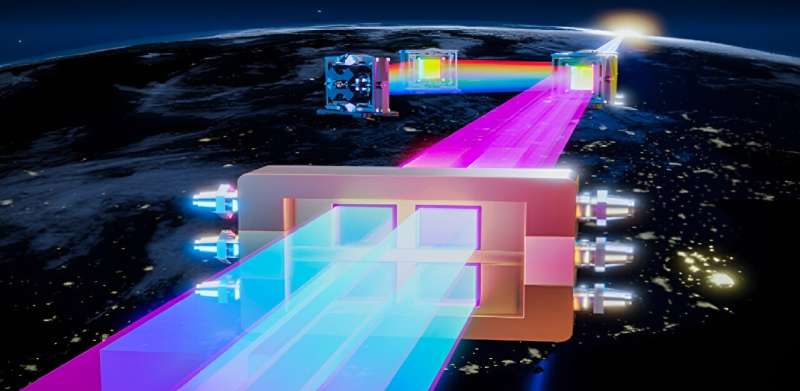
Breaking the 10-petawatt limit with a new laser amplification (09/01/2024)
Ultra-intense ultrashort lasers
have a wide-ranging scope of applications, encompassing basic physics, national
security, industrial service, and health care. In basic physics, such lasers
have become a powerful tool for researching strong-field laser physics,
especially for laser-driven radiation sources, laser particle acceleration,
vacuum quantum electrodynamics, and more.

New insights on how light interacts with magnets for better sensors and memory tech (09/01/2024)
Professor Amir Capua, head of the
Spintronics Lab within the Institute of Applied Physics and Electrical
Engineering at Hebrew University of Jerusalem, announced a pivotal breakthrough
in the realm of light-magnetism interactions. The team's unexpected discovery
reveals a mechanism wherein an optical laser beam controls the magnetic state
in solids, promising tangible applications in various industries.
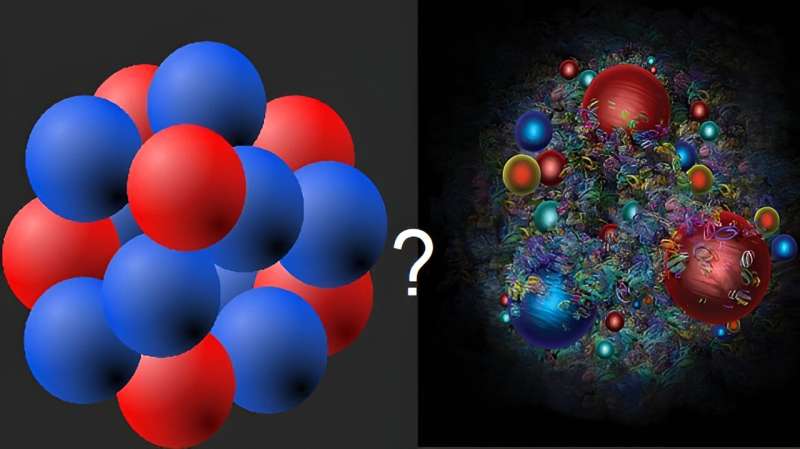
A dense quark liquid is distinct from a dense nucleon liquid (09/01/2024)
Atomic nuclei are made of
nucleons (like protons and neutrons), which themselves are made of quarks. When
crushed at high densities, nuclei dissolve into a liquid of nucleons and, at
even higher densities, the nucleons themselves dissolve into a quark liquid.
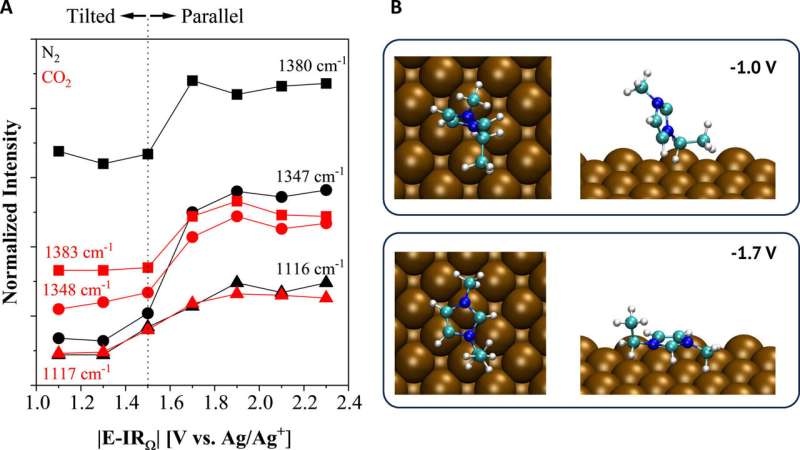
Research aims to convert greenhouse gas into valuable products with electricity (09/01/2024)
Researchers at Case Western Reserve University are developing
ways to convert waste into fuels and other products, using processes that are
energy efficient and powered by renewable sources.
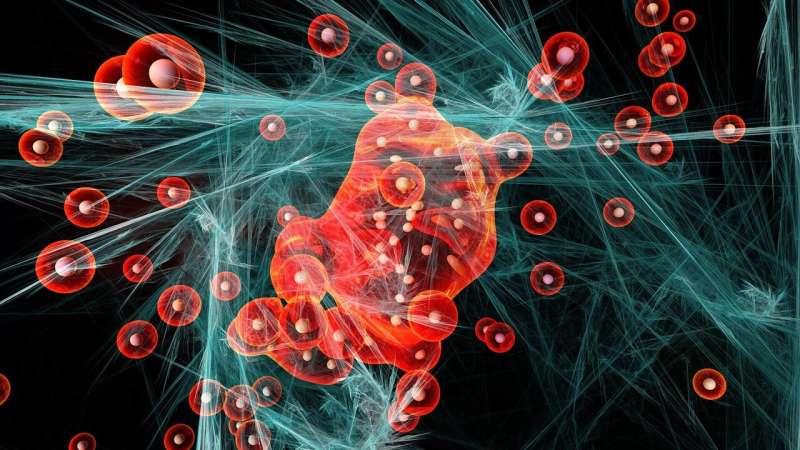
Research team combines two catalysts to make common chemical production safer, more environmentally friendly (09/01/2024)
The chemical industry has long
been shadowed by unwelcome images of billowing smokestacks and pipes
discharging toxic effluent. Modern manufacturing practices have done much to
mitigate the industry's environmental impact, but there remains room for
improvement.
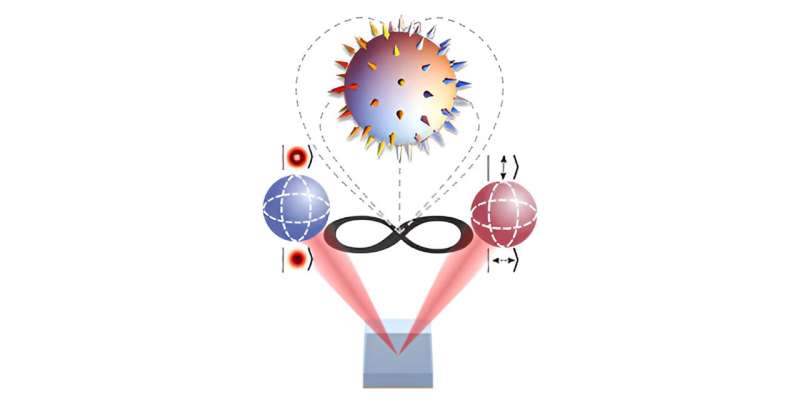
Researchers demonstrate that quantum entanglement and topology are inextricably linked (09/01/2024)
For the first time, researchers
have demonstrated the remarkable ability to perturb pairs of spatially
separated yet interconnected quantum entangled particles without altering their
shared properties.

Diabetes and weight-loss drugs—Ozempic and Wegovy—not associated with increased suicidal thoughts, finds study (05/01/2024)
A new study by researchers at the Case Western Reserve
School of Medicine reveals that a chemical used in the diabetes drug Ozempic
and the weight-management drug Wegovy is not associated with an increased risk
for suicidal thoughts.
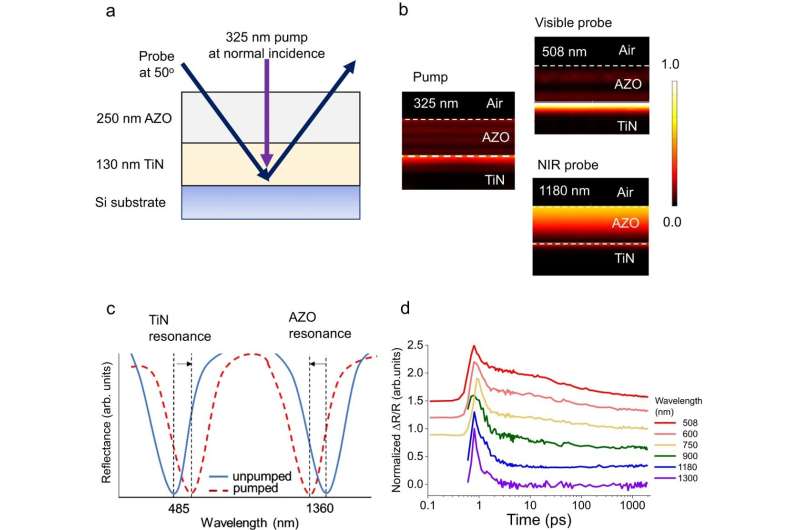
Researchers develop all-optical switches that could lead to faster computer processors (02/01/2024)
Conventional computer processors
have pretty much maxed out their "clock speeds"—a measurement of how
fast they can toggle on and off—due to the limitations of electronic switching.
Scientists looking to improve computer processors have become intrigued by the
potential of all-optical switching, which uses light instead of electricity to
control how data is processed and stored on a chip.
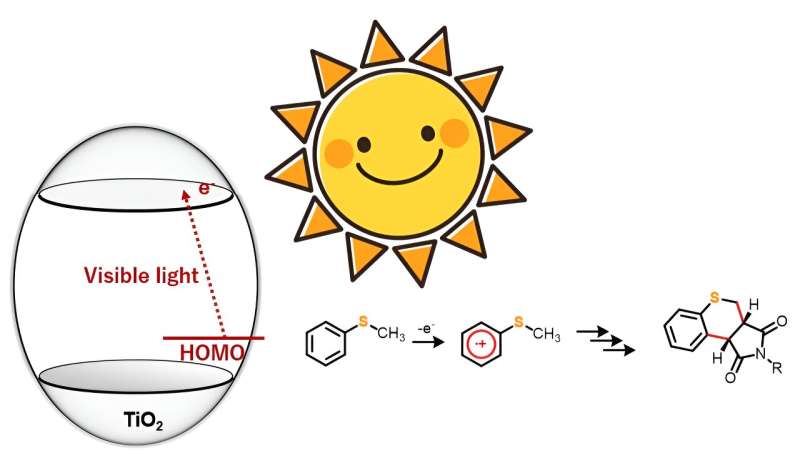
Chemical synthesis using titanium dioxide: An eco-friendly and innovative approach (02/01/2024)
Heterocyclic compounds are
organic molecules with a ring structure comprising at least two or more
elements. In most cases, these rings are composed of carbon atoms along with
one or more other elements such as nitrogen, oxygen, or sulfur. They are highly
sought after as raw materials in the chemical and pharmaceutical industry,
owing to their versatility and excellent physiological activities.









